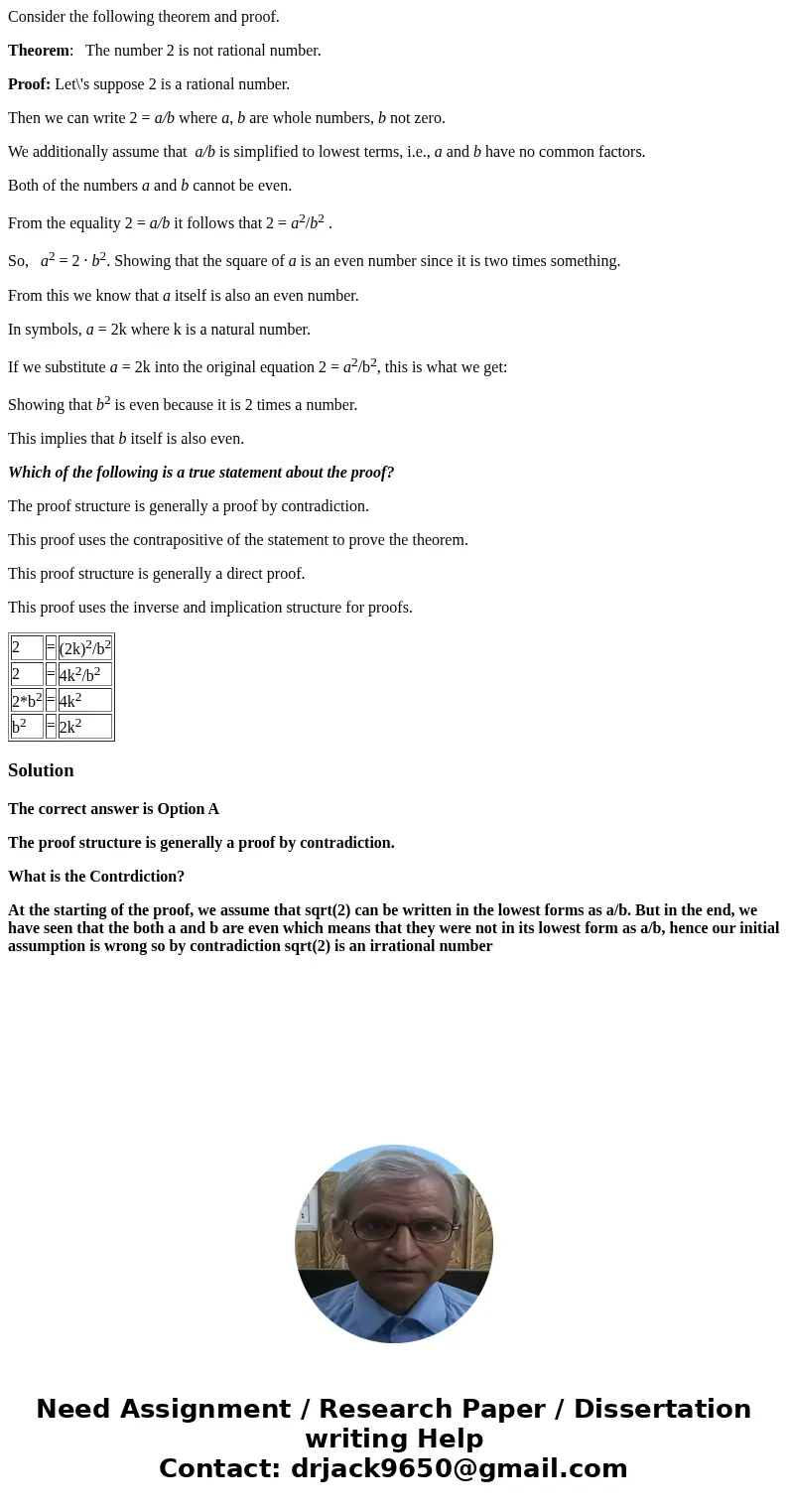Consider the following theorem and proof Theorem The number
Consider the following theorem and proof.
Theorem: The number 2 is not rational number.
Proof: Let\'s suppose 2 is a rational number.
Then we can write 2 = a/b where a, b are whole numbers, b not zero.
We additionally assume that a/b is simplified to lowest terms, i.e., a and b have no common factors.
Both of the numbers a and b cannot be even.
From the equality 2 = a/b it follows that 2 = a2/b2 .
So, a2 = 2 · b2. Showing that the square of a is an even number since it is two times something.
From this we know that a itself is also an even number.
In symbols, a = 2k where k is a natural number.
If we substitute a = 2k into the original equation 2 = a2/b2, this is what we get:
Showing that b2 is even because it is 2 times a number.
This implies that b itself is also even.
Which of the following is a true statement about the proof?
The proof structure is generally a proof by contradiction.
This proof uses the contrapositive of the statement to prove the theorem.
This proof structure is generally a direct proof.
This proof uses the inverse and implication structure for proofs.
| 2 | = | (2k)2/b2 |
| 2 | = | 4k2/b2 |
| 2*b2 | = | 4k2 |
| b2 | = | 2k2 |
Solution
The correct answer is Option A
The proof structure is generally a proof by contradiction.
What is the Contrdiction?
At the starting of the proof, we assume that sqrt(2) can be written in the lowest forms as a/b. But in the end, we have seen that the both a and b are even which means that they were not in its lowest form as a/b, hence our initial assumption is wrong so by contradiction sqrt(2) is an irrational number

 Homework Sourse
Homework Sourse